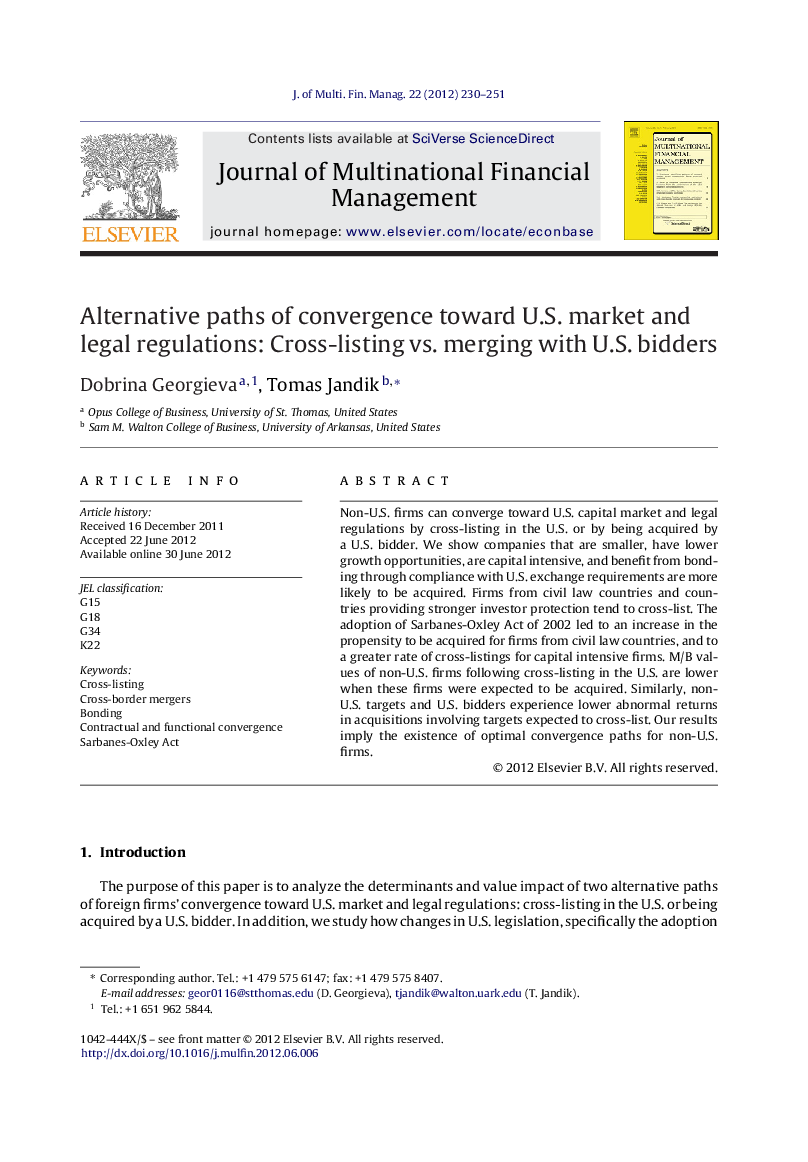| Article ID | Journal | Published Year | Pages | File Type |
|---|---|---|---|---|
| 968392 | Journal of Multinational Financial Management | 2012 | 22 Pages |
Non-U.S. firms can converge toward U.S. capital market and legal regulations by cross-listing in the U.S. or by being acquired by a U.S. bidder. We show companies that are smaller, have lower growth opportunities, are capital intensive, and benefit from bonding through compliance with U.S. exchange requirements are more likely to be acquired. Firms from civil law countries and countries providing stronger investor protection tend to cross-list. The adoption of Sarbanes-Oxley Act of 2002 led to an increase in the propensity to be acquired for firms from civil law countries, and to a greater rate of cross-listings for capital intensive firms. M/B values of non-U.S. firms following cross-listing in the U.S. are lower when these firms were expected to be acquired. Similarly, non-U.S. targets and U.S. bidders experience lower abnormal returns in acquisitions involving targets expected to cross-list. Our results imply the existence of optimal convergence paths for non-U.S. firms.
► We examine optimal convergence paths toward U.S. market and legal regulations. ► Small capital intensive firms with low growth opportunities tend to be acquired. ► Firms in countries with civil law or laws protecting investors tend to cross-list. ► M/B of cross-listed firms is lower if firms were expected to be acquired. ► Acquisitions of foreign targets expected to cross-list generate lower returns.
